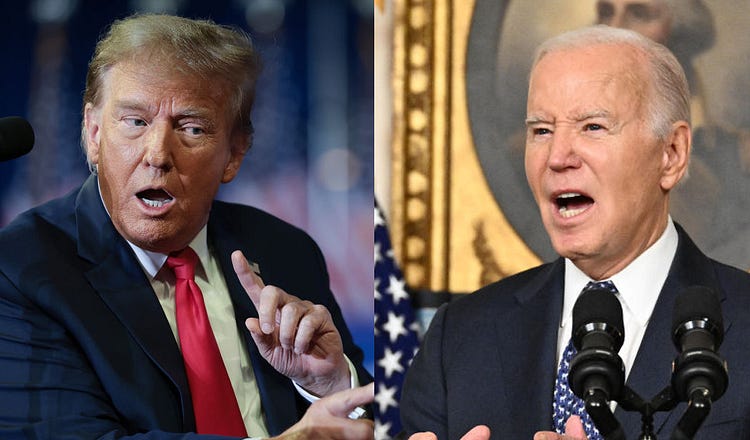In Defense of Biden and Trump

“There are people out there who believe Biden’s age isn’t an insurmountable problem—and that Trump is bang on about NATO.” (Photo by Mandel NGAN / AFP via Getty Images)
The presidential candidates have had a bad week. We steelman the case for both.
7
This article is taken from The Free Press’s daily newsletter. To get the best of the news delivered to your inbox every morning, sign up here:
Neither Joe Biden nor Donald Trump have had a great week.
Recent headlines—about the president’s age (81), and his predecessor’s freewheeling approach to foreign policy (saying Russia should “do whatever the hell …
Continue Reading The Free Press
To support our journalism, and unlock all of our investigative stories and provocative commentary about the world as it actually is, subscribe below.
$8.33/month
Billed as $100 yearly
$10/month
Billed as $10 monthly
Already have an account?
Sign In


